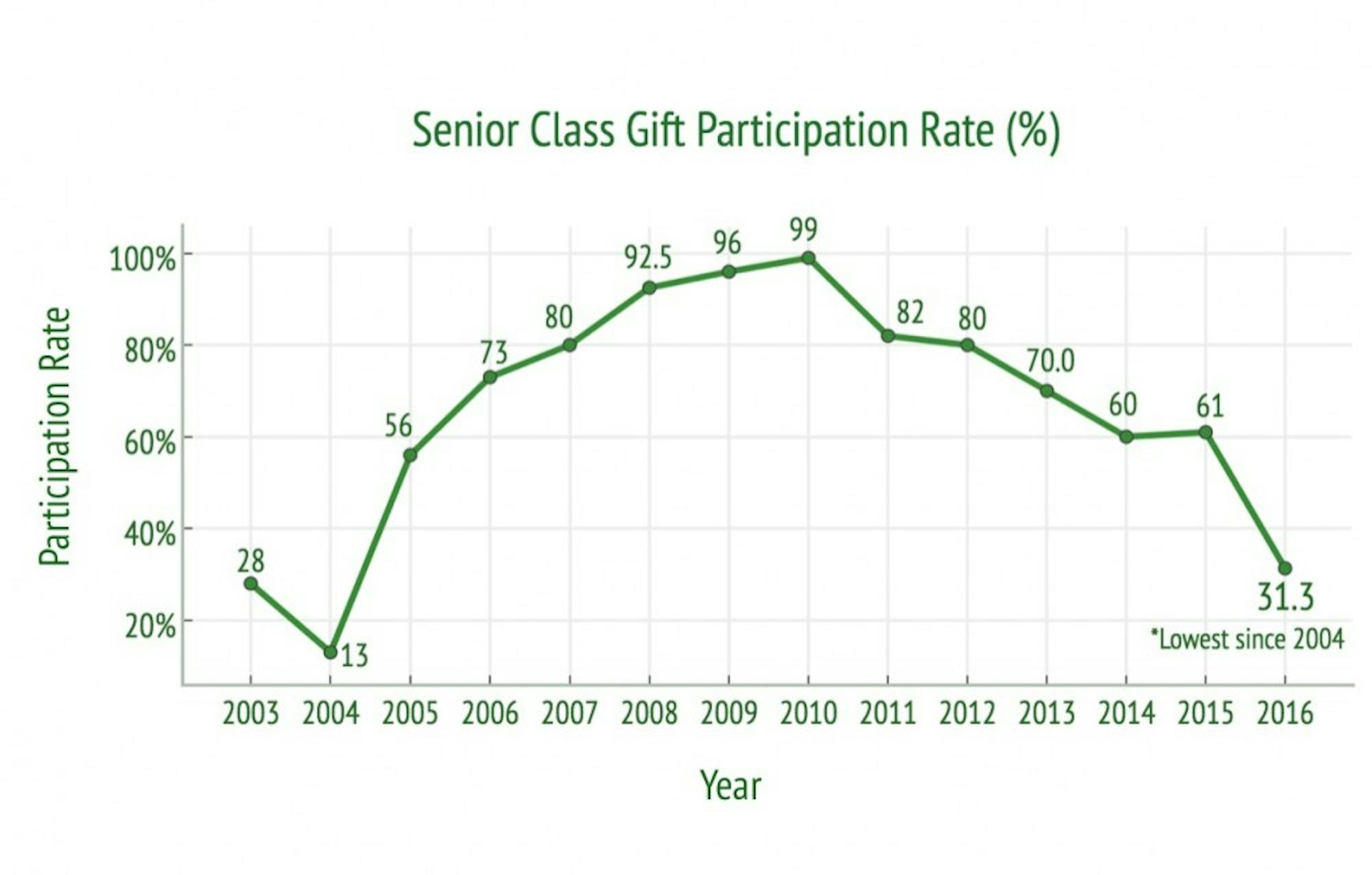There has been a trend of declining contribution since 2010. Six years ago, 99.9 percent of the graduating class contributed to Dartmouth’s senior class gift. Last June, that number fell to 31.3 percent.
After a 13 percent participation rate in 2004, the senior class gift campaign steadily generated higher turnouts. This positive trend culminated in an almost perfect giving rate in 2010, with only one student abstaining from donating. However, the College went on to see declines in the number of donors in the senior class over the next six years.
The dip in participation rate from 61 percent in 2015 to 31.3 percent in 2016 was the steepest drop it has experienced in over a decade. The Class of 2016 raised $15,887, compared to $20,143.30 raised by the Class of 2015.
Former senior gift co-chair Zachary Nelson ’15 wrote in an email that members of the Class of 2015 were dissatisfied with the administration for not hearing student concerns. Nelson cited students’ disapproval of the hard alcohol ban and stricter regulations of Greek houses as reasons why some students refused to donate in 2015.
In an article published in The Dartmouth in June that focused on the senior class gift participation rate of the Class of 2016, Leehi Yona ’16 expressed her discontent with the administration’s lack of action regarding fossil fuel divestment, sexual assault and faculty diversity.
Bryan Thomson ’16, in his column in The Dartmouth, also stressed the College’s need to seek more student input on administrative decisions.
Although the senior gift campaign met heavy resistance over the past couple of years, senior gift co-chairs found ways to encourage their peers to contribute to the fundraising effort. To boost the giving rate, volunteers from the senior class, with help from the Dartmouth College Fund staff, lead the senior class gift campaign. In the past, they have produced promotional websites, a BuzzFeed article and an anthem.
“We really worked on harnessing the ‘sentimental spirit’ of the graduating seniors and pushing the financial aid angle,” Nelson said, “People were generally pretty receptive after a simple, genuine conversation.”
Princeton University, which had the highest senior gift participation rate in the Ivy League in the 2015 fiscal year as well as the highest percentage of alumni donations among all schools in the United States, asks every graduating class for pledges instead of donations. Members of the graduating class are asked to make non-binding pledges to support annual giving over the next four years. Princeton’s senior pledge rate in 2016 was 91.3 percent, and it has recorded a senior pledge rate of at least 90 percent over the past several years.
Associate Director for Special Markets at University of Washington Monica McDonald wrote in an email that senior class gifts embody an important tradition of giving back to support current students.
“The collective impact of participation is also huge…thousands of small gifts add up to truly make a difference,” she added.




